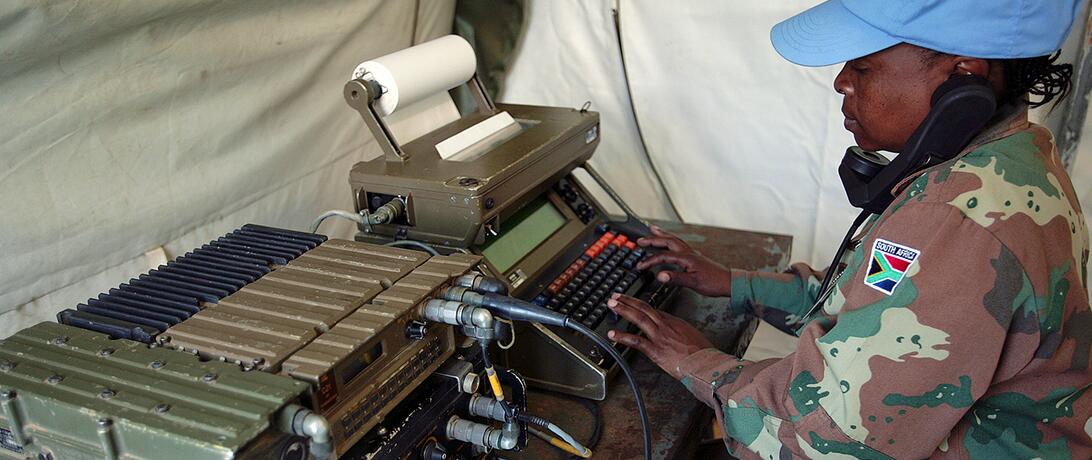
Tactical, operational, and strategic intelligence is essential to successful peace operations. Understanding the situation on the ground allows peacekeepers a better chance of success by guiding deployments, force protection measures, and other crucial operational decisions. Peacekeepers must also understand the political and social contexts in order to serve as effective mediators.
Tactical, operational, and strategic intelligence is essential to successful peace operations. Understanding the situation on the ground allows peacekeepers a better chance of success by guiding deployments, force protection measures, and other crucial operational decisions. Peacekeepers must also understand the political and social contexts in order to serve as effective mediators. In addition UN headquarters needs high-level information and intelligence. This can help the organization allocate peacekeepers to missions more effectively by anticipating new conflicts and better understanding how each conflict fits into global affairs.
The UN has made significant strides in developing these capabilities. Joint Mission Analysis Centers (JMAC) have been created within a number of missions, allowing for both analysis and dissemination of information within the mission. At the strategic level, the UN created the UN Operations and Crisis Centre (UNOCC) to provide intelligence support to field missions and UN headquarters. Finally, last year, the UN published a formal policy on intelligence activities to further institutionalize these capabilities.
However, additional improvements to the UN’s intelligence system would give both UN headquarters and deployed missions better information to more effectively carry out their responsibilities. The UN should further institutionalize its intelligence capabilities. It should insure that all significant missions have a robust JMAC team and continue to develop the UNOCC’s capabilities. In addition, standard operating procedures for collecting, analyzing and disseminating information can be further developed to ensure that officers and contingents from diverse countries are following a common process.
The UN may also need to expand its intelligence collection capacities. While the organization has expanded its use of UAVs, night vision devices, and ground-based sensors, the deployment of these assets remains uneven. The UN should also develop its ability to collect and use human intelligence. This is an understandably sensitive subject given the association between these activities and spying. However, knowledge provided by the local population is necessary to understand the political and social context of conflicts. This knowledge can be gathered openly by talking with individual people and does not require clandestine activities. In addition, peacekeepers and other mission staff can themselves provide valuable information to higher headquarters. Through their own observations and interacting with local individuals and officials, peacekeepers and civilian staff gather significant amounts of information about what is happening in a country.
Collecting, analyzing, and sharing this information is essential for insuring that all mission personnel and UN headquarters are adequately informed about the situation. Thus, developing standardized procedures to collect information from peacekeepers and mission staff, and then disseminate it back to the rest of the mission will greatly enhance the UN’s intelligence capabilities.
While the UN has significantly improved its ability to gather and manage information and intelligence, further improvement can increase the effectiveness of peacekeeping missions. Check back in next week when we discuss the role of helicopters in UN peacekeeping operations. For previous pieces in this series and other analysis on international conflict and governance check our ThinkPeace blog.
Article Details
Published
Topic
Program
Content Type
Opinion & Insights